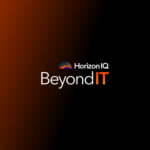
DNS failover is a must-have for any company that generates revenue from its website. Having a reliable disaster recovery plan in place can prevent negative repercussions on your bottom line. But let’s face it – outages can and do occur. They can happen at any moment and for a variety of reasons including:
- Hardware failures
- Malicious attacks (DDoS, hackers)
- Scheduled maintenance and upgrades
- Man-made or natural disasters
Today, we announced a new feature for HorizonIQ’s Managed DNS: Active Failover. Backing up your sites and making sure that your DNS service includes failover are important steps in preparing for downtime. Since DNS handles the initial transaction to your servers, it can be a first line of defense to make sure your users have uninterrupted access to your content.
What is a Managed DNS solution?
Internet service providers usually run basic DNS services; however, certain organizations or individuals can greatly benefit from the features and performance of a managed DNS. Managed DNS is a service that allows you to control the DNS of your sites without having to worry about the underlying infrastructure. Furthermore, managed DNS solutions provide advanced features, availability, and redundancy.
What is DNS Failover and how does it work?
DNS Failover is essentially a two-step process. The first step involves actively monitoring the health of your servers. Monitoring is usually carried out by ping or Internet Control Message Protocol (ICMP) to verify that your HTTP server is functioning. The health of the servers can be assessed every few minutes, and more advanced services allow you to configure your monitoring time settings. In the second step, DNS records are dynamically updated in order to resolve traffic to a backup host in case the primary server is down. Once your primary server is back up and running, traffic is automatically directed towards its original IP address.
DNS Failover is not without limitations. In order for it to work, you need to have backup locations for your site and applications. Even if DNS records are quickly updated once an outage has been detected, ISPs need to update their DNS cache records, which is normally based on TTL (Time to Live). Until that occurs, some users will still be directed to the downed primary server.
The HorizonIQ solution
Unlike some DNS service providers, HorizonIQ’s Managed DNS performs health checks 24/7 to verify the availability of your website or applications and provide you with the optimal DNS failover solution. In addition, managing and setting up DNS failover for the first time is quick and easy through our intuitive web interface and portal.


